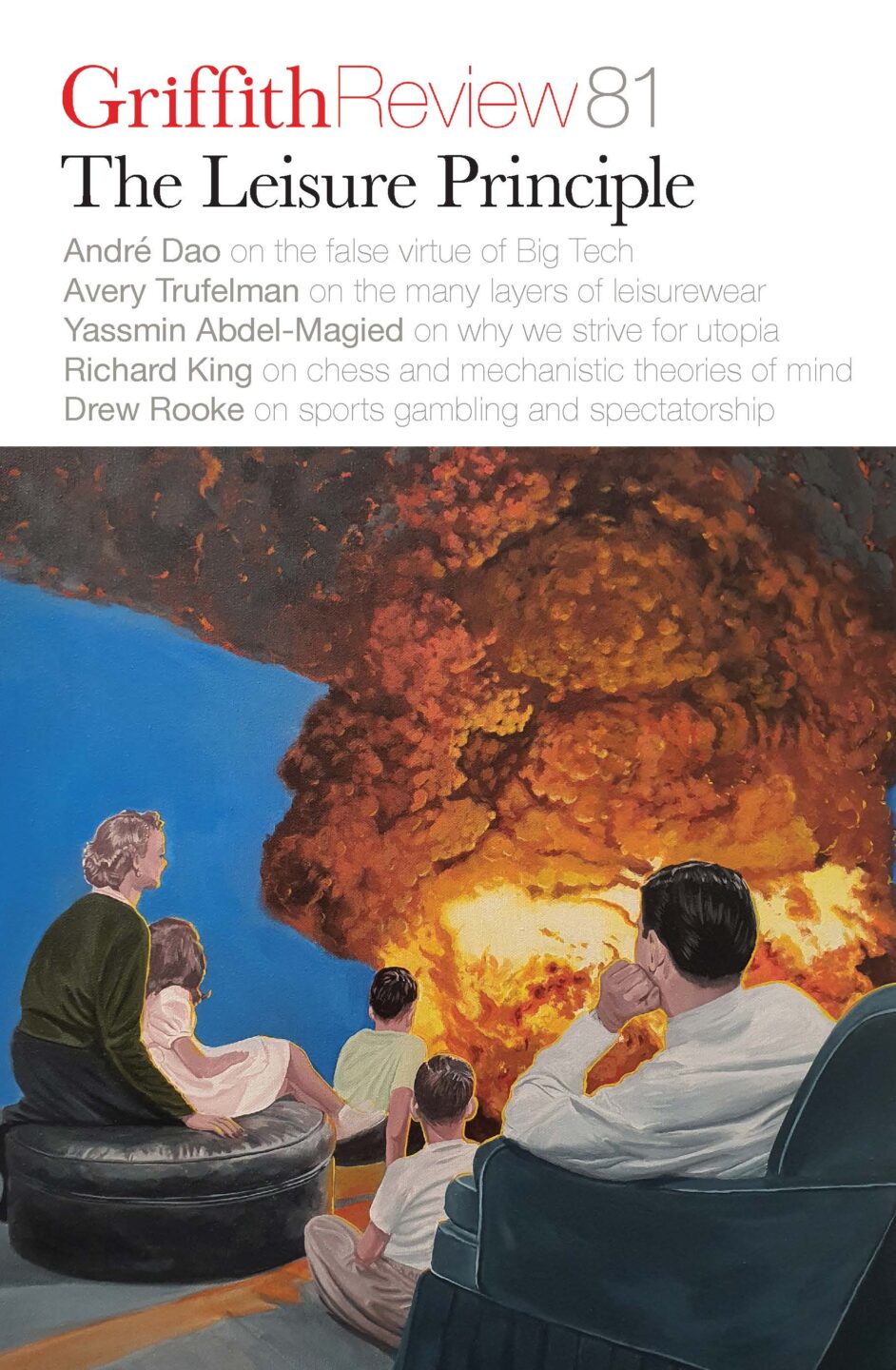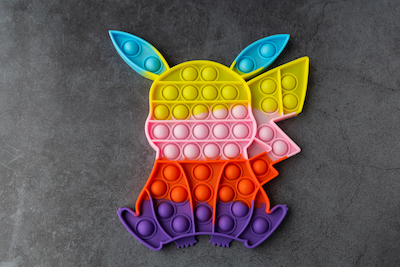Featured in

- Published 20230801
- ISBN: 978-1-922212-86-3
- Extent: 196pp
- Paperback (234 x 153mm), eBook


Already a subscriber? Sign in here
If you are an educator or student wishing to access content for study purposes please contact us at griffithreview@griffith.edu.au
Share article
More from author

Walking through the mou(r)n(ing of a)tain(ted life)
Non-fictionMy big black cloak could probably keep me from freezing overnight. I remember a movie where a character smeared a layer of dirt over their body to stay warm. That would be my ‘break in case of emergency’ action…if my OCD will bury the anxiety of contamination for survival’s sake.
More from this edition

Hump day
Fiction‘Well, I’m sure all your questions will be answered very soon. Genius Inc. is holding a press conference at 3 pm,’ Sam says. ‘The Prime Minister will be there too, since the government is partly funding them now, after their cancer discovery. It’s serious, Prue. Try to have an open mind, alright? Keep your phone close. I’ll call you straight after.’ ‘Sure,’ she yells after him, ‘if we survive it.’

In the fullness of time
Non-fictionOur devices and data are more than extensions of our physical bodies. The so-called ‘human-centric’ approach to designing wearable and carriable devices means that they disrupt traditional divisions between work and leisure, production and consumption. It’s difficult not to feel the incursion of work-logics into leisure times and spaces as normal. Stretched for time, couples, families and friendship groups are starting to organise themselves using tools like Slack, Jira, Trello and Asana – that is, in the same way as workplaces.

We will never be modern
Non-fictionMy Instagram feed, an information-stream cosplaying as a hyper-relevant town square, has undergone a radical transformation in the past few years. Whereas once that endless deluge teemed with benign yet revealing snapshots of friends moving through the motions and milestones of life – brunches, holidays, weddings and pregnancies – today’s experience is far removed.